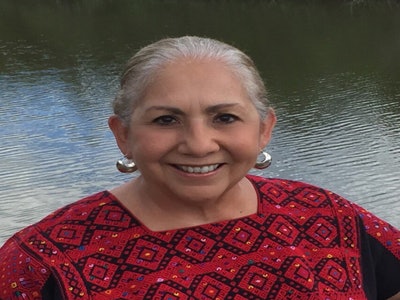FORT WORTH, TEXAS — Kamau Chege doesn’t necessarily consider himself to be much of an activist, but when it comes to diversity in higher education, he has been a fierce proponent for change.
“Like any college that is predominantly White, there is a history of racism,” says Chege, a rising senior at Whitworth University in Spokane, Washington. “Whitworth is not an exception.”
 Dr. Juliet V. García delivered the opening keynote speech at NCORE conference.
Dr. Juliet V. García delivered the opening keynote speech at NCORE conference.Chege joined more than 3,000 like-minded students, faculty and staff from 900 colleges and universities from across the country at the annual National Conference on Race and Ethnicity (NCORE) in American Higher Education.
For more than 30 years, NCORE has become the destination space for progressive students, faculty and administrators who want to engage in a candid conversation about everything from racism to White privilege.
Dr. Belinda P. Biscoe, the interim vice president for university outreach, public and community services at the University of Oklahoma and the administrator for NCORE, said that in this current political climate, there has been an effort by some to “reverse the gains of social progress over the last five decades.”
She said that the proliferation of racist incidents on college campuses, as well as the spate of police shootings of unarmed Black men and efforts by some states to engage in voter suppression are reasons why NCORE still needs to exist.
“Our collective energy is power,” Biscoe told the participants in the opening session. “Together we will transform our institutions.”
At the opening session of the conference, Dr. Juliet V. García, the senior advisor to the Chancellor for Community, National and Global Engagement at the University of Texas System, delivered a rousing speech.
“Now more than ever, we should be vigilant,” said García, who was the first Mexican-American woman to be a college president. In 1986, she was named president of Texas Southmost College and later took the helm of the University of Texas at Brownsville. “You don’t get time off. You don’t get an election off. You decided not to take time off. You decided to be a participant not a spectator.”
During her address, García talked about the challenges that she faced while serving as president of a university located in a poor city just miles from the Mexico border. When the U.S. Department of Homeland Security wanted to build a fence along the college campus, García was thrust into the public spotlight because she refused to sign a right of entry. Homeland Security sued her.
“We are the defenders of our democracy,” García said. “I think we teach our students by using our own voices.”
The case was eventually settled, but García told the participants that it was important for them to raise their voices, even on issues that are unpopular.
Jazlyn Talley, 19, a student at Iowa State University said that García’s message and the conference in general have been empowering.
“I am learning quite a bit already,” said Talley, who is a first-time conference participant. “This has been an amazing experience.”
Jamal Eric Watson can be reached at [email protected]. You can follow him on Twitter @jamalericwatson





















